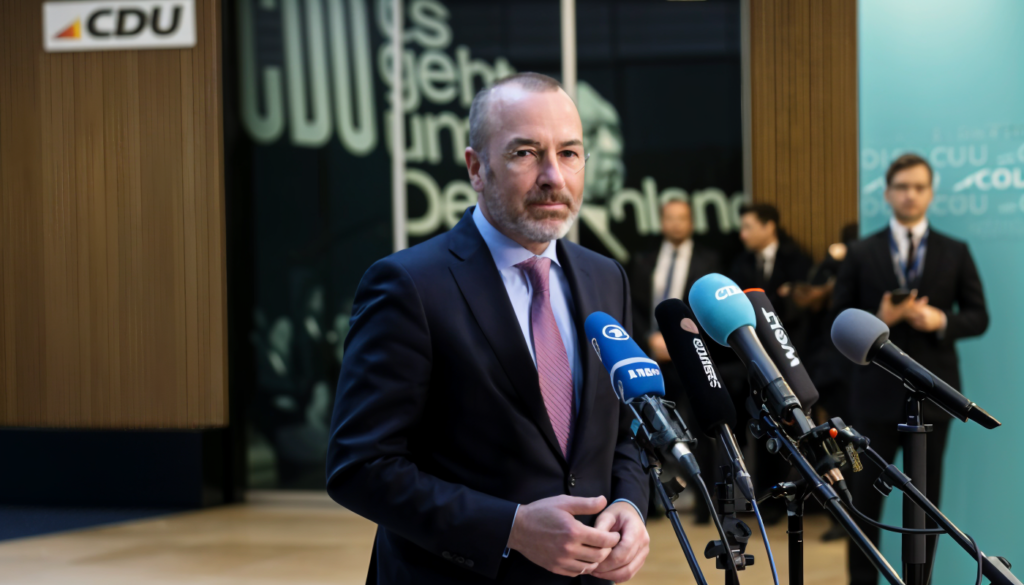
Manfred Weber, the German politician leading the European People’s Party (EPP), is on track to run unopposed for a second term at the helm of Europe’s largest center-right political group. Despite internal disagreements and criticism regarding his dual leadership role, Weber remains firmly in control, and his re-election seems all but assured.
Weber’s Influence and Controversial Leadership
Weber’s leadership spans both the EPP group in the European Parliament and the broader European umbrella party. His dominance within the EU is expected to continue, with the EPP congress in Valencia scheduled for April set to confirm his position for another three years.
While Weber faces no significant challengers within the party, internal divisions remain. A senior EPP official shared that although no one within the party actively opposes Weber, the lack of competition reflects deeper issues within the organization. “Nobody wanted him in 2022, nobody wants him now, but nobody wants to pick up the phone and deal with it,” the official stated, highlighting the diminishing importance of the party.
Controversy Over Political Alliances
Despite broad support for his leadership, Weber’s political alliances have sparked controversy, particularly his close ties to hard-right leaders like Italian Prime Minister Giorgia Meloni. Critics have raised concerns about conflicts of interest, given Weber’s dual role overseeing the EPP and enacting EU Commission President Ursula von der Leyen’s agenda in the European Parliament.
However, key EPP figures like Swedish lawmaker Tomas Tobé have defended Weber, crediting him for strengthening the party’s position within European institutions. “Manfred has made the EPP stronger than ever,” Tobé commented, emphasizing Weber’s ability to consolidate power.
Divisions Within the EPP
Not all members of the EPP are united in their support for Weber. Factions from Greece and Spain, in particular, have expressed dissatisfaction with his leadership. The Greek faction, led by Thanasis Bakolas, and Spanish members upset over Weber’s support of Teresa Ribera for EU Commissioner, remain critical. Despite their opposition, these factions are not expected to actively challenge Weber’s candidacy.
“We won’t start now setting the party on fire,” one anonymous EPP official remarked, underlining the reluctance to engage in open conflict. As a result, Weber is likely to secure his second term by leveraging his position, offering key party posts in exchange for continued support.
Weber’s Role in Shaping EU Politics
Weber’s re-election represents a continuation of his influence over European politics. Having played a key role in the re-election of von der Leyen, Weber now aims to steer EU policy in alignment with his vision. His leadership extends beyond the EPP group, as he seeks to consolidate power across EU institutions.
Sophia Russack, a researcher at the Centre for European Policy Studies, notes that while Weber’s position is strong, emerging political figures like Friedrich Merz, Germany’s potential next Chancellor, may challenge his dominance. Merz’s growing influence on the European stage could create competition for Weber, particularly in the wake of Germany’s shifting political landscape.
Conclusion
Manfred Weber’s unopposed re-election as EPP leader underscores his continued political dominance within the EU. While internal divisions and criticisms persist, Weber’s leadership remains unchallenged for now. As he moves forward with plans to consolidate the EPP’s power across European institutions, Weber’s role in shaping the future of European politics remains central.
